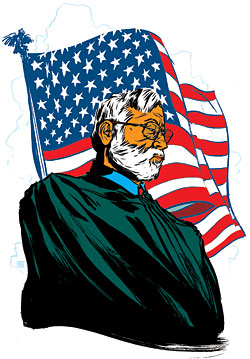
The aftermath of the financial crisis was a blur of litigation and debate, but not a lot of action. That is, until United States District Court judge Jed Rakoff spectacularly rejected the $33 million settlement Bank of America agreed to pay the Securities and Exchange Commission for lying to its shareholders about the acquisition of Merrill Lynch. Using shareholder money to settle a suit in which the company was accused of misusing shareholder’s money was, he ruled, “absurd.” The judge—who also presided over a WorldCom case, sent financial fraudster Marc Dreier to prison, and will soon unravel the Galleon insider-trading ring—didn’t mince words: “Oscar Wilde once famously said that a cynic is someone ‘who knows the price of everything and the value of nothing.’ [This agreement] suggests a rather cynical relationship between the parties: The SEC gets to claim that it is exposing wrongdoing … the Bank’s management gets to claim that they have been coerced into an onerous settlement by overzealous regulators. And all this is done at the expense, not only of the shareholders, but also of the truth.” In a year in which we’d been barraged by obtuse language meant to justify big bailouts and bad behavior, the clarity was a revelation.